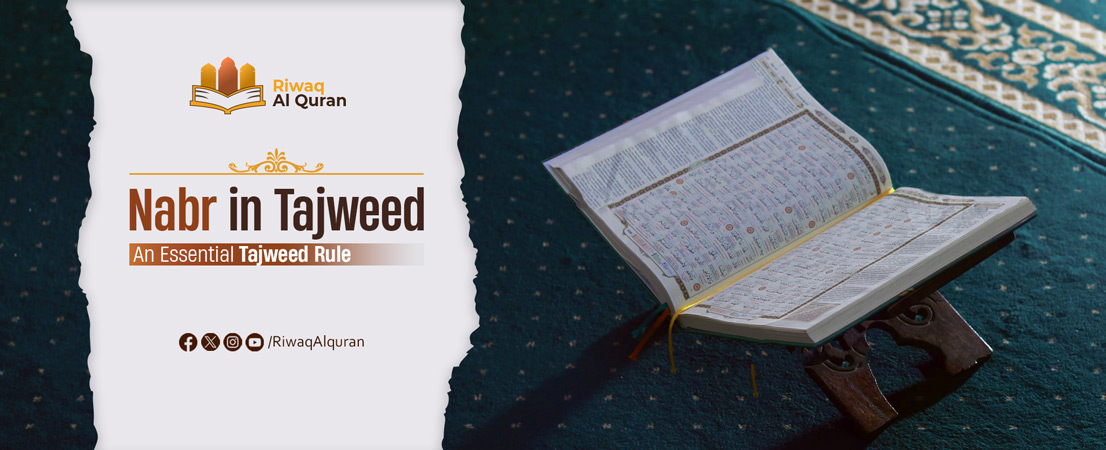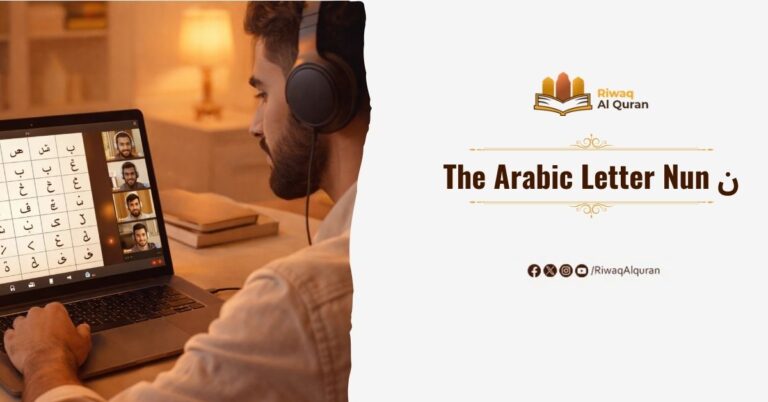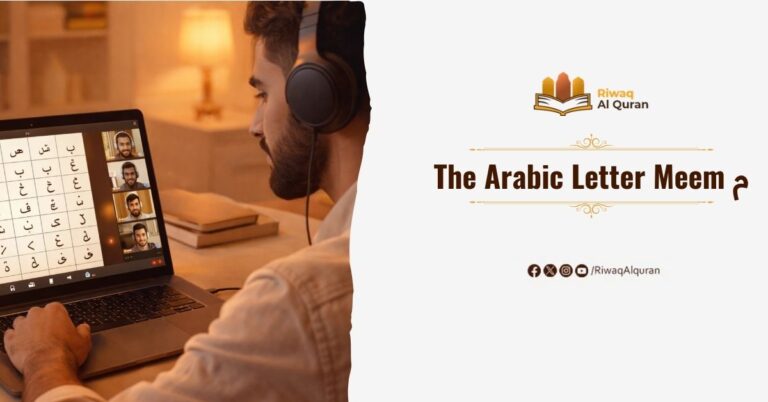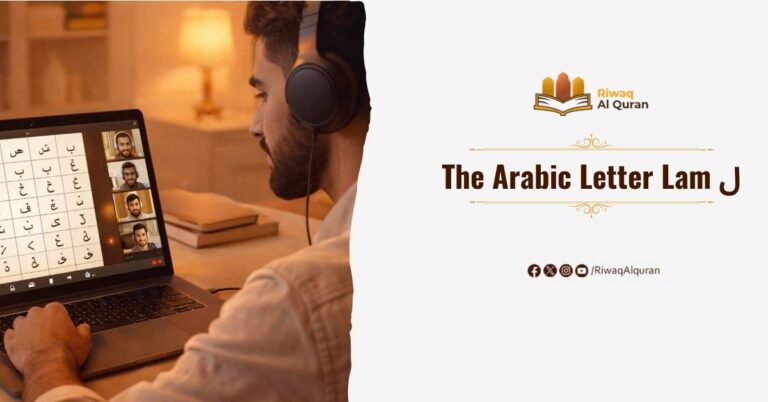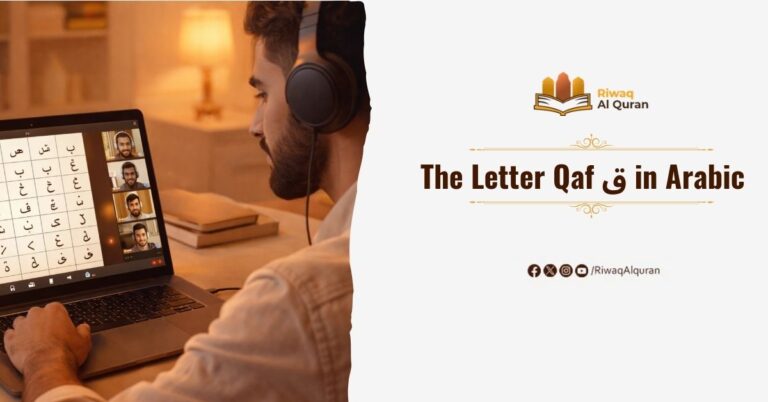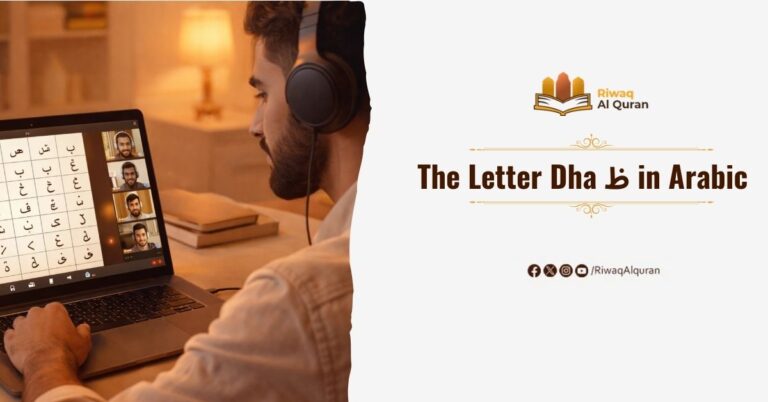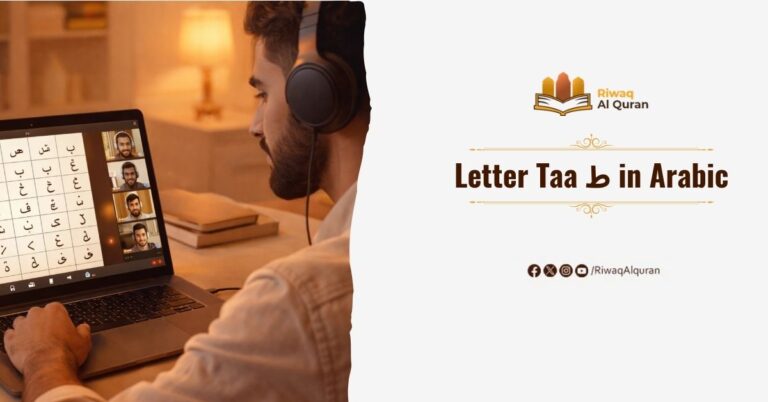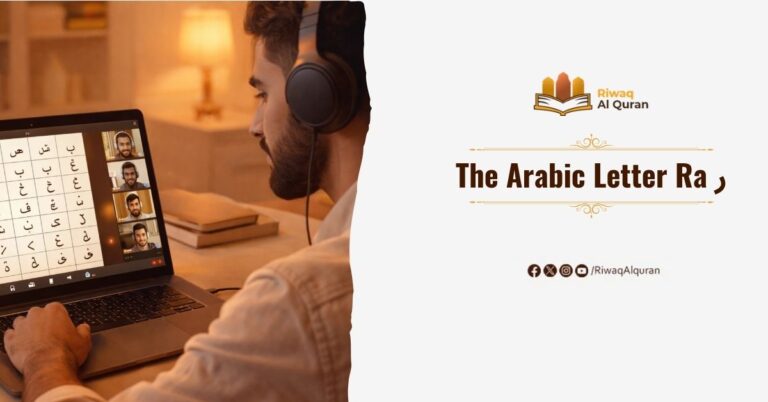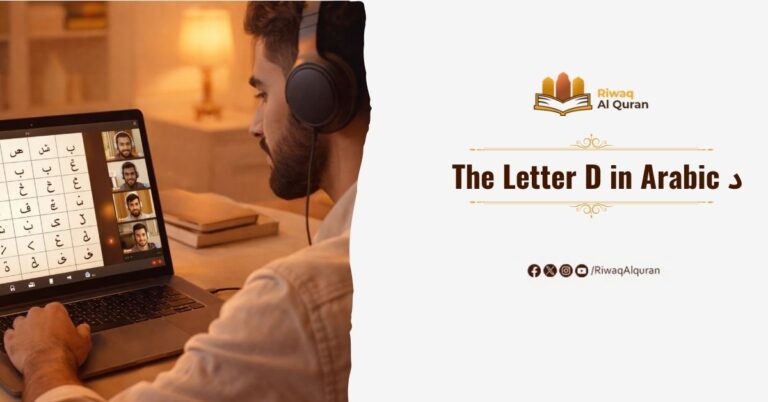To preserve a perfectly rhythmic, meaningful, and precise recitation of Qur’an, you need to be really attentive of the tajweed techniques of the letters’ articulation-points and characteristics. Just learning how to produce the letters correctly from their articulation-points is not sufficient for the excellent recitation. Rather, you need too, to adhere to the distinguishing letters’ characteristics.
Nabr is one of the letters’ characteristics that notably highlights the skillful recitation of the Qur’an, as it definitely adds a very special touch of melody and intonation that elevates the one’s recitation to a whole different, proficient level. Let’s know about the nabr in tajweed, and when to apply it, with some explaining examples.
Table of Contents
What Is Nabr in Tajweed?
Nabr, as a noun in Arabic, refers to the high, clear voice; it derives from the verb /nabra/ which means raising the voice after lowering it, for the purpose of stressing and making it audible and emphasized. In tajweed, nabr can be defined as accentuation, stressing the accent of a specific letter to make it slightly louder and clearer than the other surrounding letters.
The Qur’anic Cases of Nabr:
There are certain contexts and cases to apply nabr, when reciting the Qur’an which the reciter should be aware of, for not missing them.
1. When Stopping at a Last Letter with Shaddah:
When reciting the Qur’an, if we stop at a word where its last letter is doubled (with shadda), we raise our voice a little bit on the last letter, to not miss the shadda-sound, like in: /wabbathth/ وبثّ الحيّ), / Al-hayy/
Yet, there are some cases where the last letter of the word is stressed (with shaddah), yet we don’t need for nabr for them, as the last letter is already accentuated by another, adequate characteristic like:
- Stressed Noon ن and Meem م:
We don’t need to apply nabr, when stopping at the last letter of the word is whether noon ن or meem م with shaddah, like in /Yamm/ إنً- اليمّ, /Enn/ as we apply already ghunna.
- Qalqalah:
We don’t need to apply nabr, when stopping at the last letter of the word is one of the qalqalah-letters: قطب جد, like in /Al haqq/ الحقّ, as we apply already qalqalah.
2. When Pronouncing Stressed Waw و Yaa ي:
We apply nabr when we pronounce words where yaa ي, or waw و are stressed, to avoid elongating them, like in (أَوَّابٌ) /Awwab/, and (سَيَّارَةٌ) /Sayyara/.
3. When A Letter with Shaddah Coming after a Madd-Letter:
We apply nabr on this letter with shaddah coming after an elongated letter, to emphasize the shadda, like in (دَآبَّةٍ) /daabba/, (صَوَآفَّ) /sawaaff/.
4. When Stopping at a Hamza Coming after a Madd-Letter, or Leen-Letter:
We apply nabr when we stop at a hamza after a Madd-letter, such as Alif ا, waw و, yaa ي, like in (السَّمَاءِ) /as-samaa’/.
5. When Dropping the Dual-Form of Alif (of the Past Verb):
We apply nabr, when we have to drop the Alif’ dual-form, to avoid the two sakins’ meeting, and the verb then can be mistakenly interpreted as a singular form, not the dual.
Nabr here is essential as it preserves the meaning of the dual, like in: (ادْخُلَا النَّارَ) /udkhula an-naar/.
Read more about: Tajweed Symbols


Learn Quran, Arabic And Islamic Studies Online With The Best Native Tutors
Riwaq Al Quran is a comprehensive online platform that offers personalized Quran, Arabic and Islamic Studies Online classes for individuals of all ages and backgrounds.
Their experienced instructors use a structured curriculum to cover Tajweed, Tafsir, and Memorization, providing easy and effective access to learning the Quran.
The advanced online classes allow for seamless communication and interaction between students and teachers. Join Riwaq Al Quran for a deeper connection with the Quran.
We offer several courses such as:
- Online courses for kids.
- Online Quran classes for kids and adults.
- Online Arabic courses
- Online Ijazah courses
- Online Islamic Studies courses.
Here are a sample of our set of Quran Courses that will be helpful for you:
- Online Tafseer Course: Delve into Quranic meanings with our insightful online Tafseer course.
- Noorani Qaida Online: Learn Quranic basics efficiently through our Noorani Qaida online program.
- Online Quran Recitation Course: Enhance Quranic recitation skills through our expert-led online course.
- Online Tajweed Classes: Master Tajweed rules for beautiful Quranic recitation in online classes.
- Quran Memorization Online Course: Memorize the Quran effectively with our specialized online memorization course.
- Online Qirat Course: Explore diverse Qirat styles with our comprehensive online Qirat course.
- Online Quran Classes for Kids: Nurture a love for the Quran in kids through interactive online classes.
Conclusion:
Indeed, nabr is one of the subtle characteristics of the Arabic letters, which only the proficient reciter can adhere to. Of course, you need to listen and practice more and more of the nabr technique while reciting Qur’an, until you can apply nabr precisely, and in turn, recite the Qur’an more accurately and competently.
For that noble purpose, Riwaq Academy is always here for you to help. In Riwaq, there are specialized, knowledgeable Qur’an-teachers who can instruct you and correct your recitation, until you reach proficiency.

